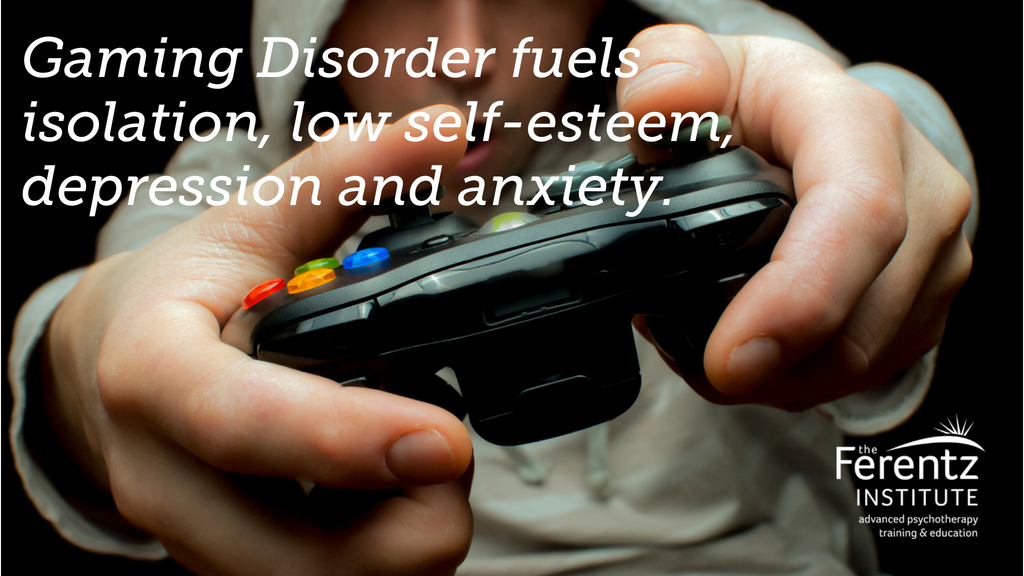
I was recently listening to a call-in radio show where a parent lamented the fact that her son had turned down an engineering scholarship and deferred starting college so he could continue spending 8 to 10 hours a day perfecting his video gaming skills in the hopes of pursuing that professionally. Although she was upset, she felt helpless to change his mind, was tired of the fighting, and resigned herself to support him financially and allow him to continue living at home as he “gamed” in his room.
Now more than ever, there is growing concern within the mental health field about the extent to which kids and adults are developing full blown addictions to internet and video gaming. Just as we see with other addictive behaviors, excessive gaming includes an intense preoccupation with the behavior and a build-up of tolerance so it becomes necessary to spend more and more hours gaming in order to achieve the same degree of satisfaction and pleasure. And just like other addictive behaviors, people who are addicted to gaming actually experience withdrawal and feel deeply unhappy and resentful when they are unable to play their games. Despite the fact that family, friends, and mental health professionals ask them to cut back on their gaming, people who are addicted become defensive, refuse to accommodate those requests, and persist in the behavior even when it causes serious problems.
Kids, teens, and adults might try to argue that gaming is a fun pastime, but taken to extremes it often serves the purpose of promoting:
- dissociation and escape from stressors,
- interpersonal problems, or
- mental health issues including depression and social anxiety.
Although in the short term the behavior helps to alleviate psychic pain through distraction, like any other addiction, in the long-term the behavior is self-destructive and tends to increase arguments, shame, stress, and guilt. It begins to adversely impact work, school, finances, relationships, even health. Many people who have this addiction will hide the behavior or lie about the extent to which they engage in it. These deceptions feel necessary and serve the purpose to protect the behavior and foster a sense of denial about it. Inevitably, when the lies are uncovered, there is a dramatic increase in fighting and conflicts with loved ones.
Gaming disorder should not be minimized or rationalized. It creates serious problems and winds up fueling isolation, low self-esteem, depression and anxiety.
One of the more insidious by-products of a gaming disorder is the fact that the countless hours spent on-line or in an altered state of fantasy detract from time that could be spent with studying academics, interacting with peers and family, connecting with nature, exercising, and engaging in other hobbies and activities that enrich mental, physical, and emotional wellbeing. Although the mother in the call-in show meant well, allowing her son to continue gaming, even to the detriment of his education and future career, her choice is like offering him an endless supply of drugs and alcohol. Gaming disorder should not be minimized or rationalized. It creates serious problems and winds up fueling isolation, low self-esteem, depression and anxiety. Like any other addiction, it requires detox and treatment. Loved ones should be careful not to enable the behavior and push for an intervention and formal treatment, exactly like they would with any other addiction.
Have you treated any clients with a gaming disorder? What has been your experience?

